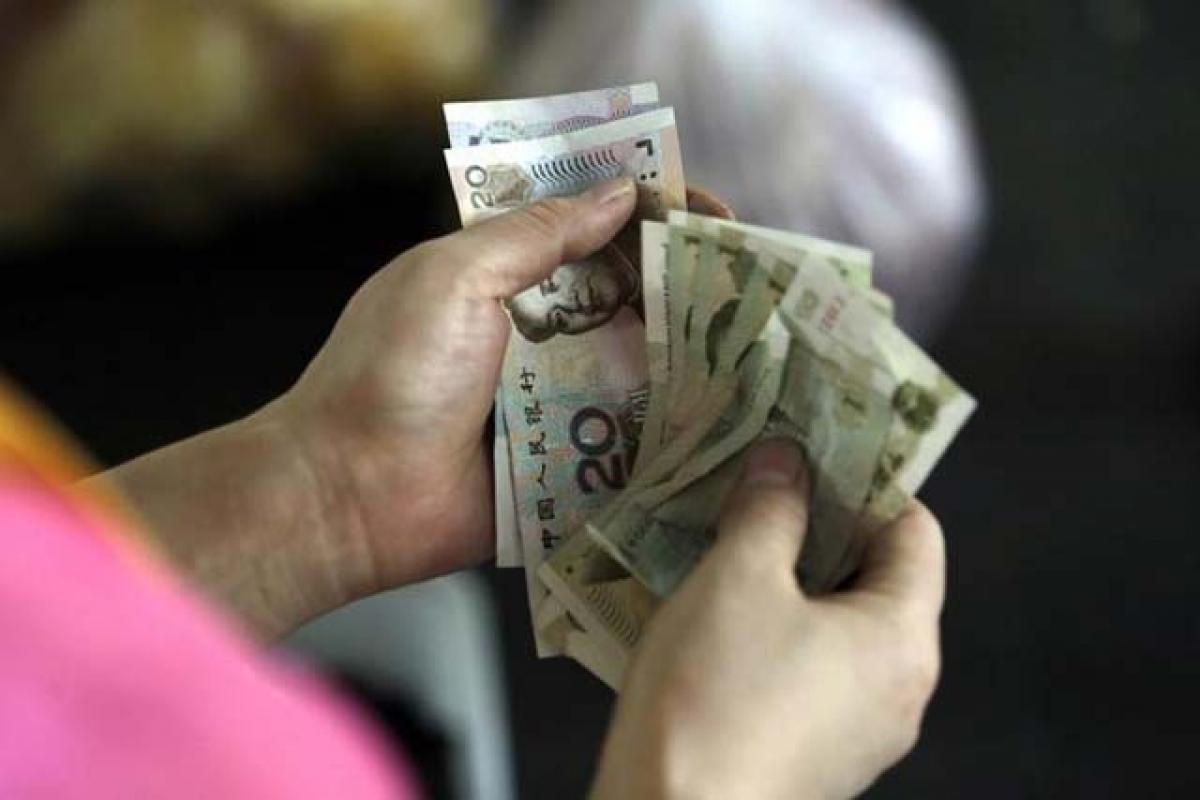Live
- National Lok Adalat Resolves 3387 Cases at Alampur Court
- ‘Get Set, Grow Summit 2024’ Focuses on Digital Detox for Families
- Stokes motivates his team to put in extra effort, says England pacer Potts
- From overcoming setbacks to leading India in U19 Women’s Asia Cup, Niki Prasad's amazing journey
- Driving Enterprise Security: Inside Venkata Reddy Thummala’s Leadership Journey
- Constitution debate: PM Modi hails 'Nari Shakti'; makes strong pitch for 'United Bharat’
- Abhijeet Bhardwaj: Revolutionizing Enterprise Analytics with Innovation and Expertise
- Bihar: Inquiry initiated against principal who went to buy veggies during school hours
- Press Sri Lankan Prez for release of Indian fishermen: TN Cong MP to EAM Jaishankar
- TN: DMK postpones executive meet due to heavy rains & Parliament session
Just In

China’s move - not why, but why now. “This is not what New China should look like\", screams one report in my inbox this morning. I\'ve seen similar statements repeated across the board since China\'s surprise move to devalue its currency yesterday and then by allowing it to weaken further on Wednesday.
“This is not what New China should look like", screams one report in my inbox this morning. I've seen similar statements repeated across the board since China's surprise move to devalue its currency yesterday and then by allowing it to weaken further on Wednesday.
.jpg)
As currency analyst Philippe Gelis told me: "China's rapid U-turn in monetary policy highlights that's the nation's economic situation is reaching desperation point. "Despite previously stating that the currency would let the yuan float, China has instead opted for a clear currency war".
Strong words, for what seem on the surface to be small moves. Let's look at the numbers. China devalued its currency against the US dollar by 1.9% yesterday and cut it's reference rate by a further 1.6% today. China sets its own exchange rate for its currency - although it's now saying that the new mechanism it has used to change the value of the yuan will be more market oriented.
But still - those are tiny devaluations in the big scheme of things. Also the devaluations are unlikely to have an immediate effect on exports. DBS Bank in its daily breakfast note said "A proper devaluation is 10 - 30%, and it has to stay the course for a year before exports start to show any change".
But the question we should be asking isn't how much did China's devalue its currency by - but why now? China's been under international pressure to allow its currency to be driven by market forces as opposed to by the government for years. The US has been its biggest critic - saying that Beijing keeps the currency artificially low to help boost exports.
China's central bank says it wants is looking to allow its currency to respond more to market forces So in theory, China says it is doing what the US and the international community wants. According to the language of the Chinese central bank, China will now allow the yuan's value to be more flexible.
This has already got it a nod of approval from the International Monetary Fund (IMF) which overnight said China's new mechanism for setting the daily reference rate for the yuan was a "welcome step". Remember China wants to enter the IMF's elite global currency club - something it can't do without more of a more market driven exchange rate. So again - in theory - the US should have welcomed this move too.
But overnight, the US Treasury department said: "We will continue to monitor how these changes are implemented and continue to press China on the pace of its reforms…Any reversal in reforms would be a troubling development." So let's go back to that key question: why did China devalue its currency now - and allow for market forces to play more of a role now? Over the weekend export figures showed a slump of more than 8% from last year.
Analysts say Chinese officials are clearly concerned about the fact that rebalancing their economy and moving from exports to consumption is taking longer than they expected. But Chinese factories employ millions of people - and any sharp slowdown could affect their livelihoods - and lead to massive job losses, which could make the Chinese government unpopular - and possibly lead to social unrest.
The reality is that rebalancing takes time - but it appears that it may be taking too long for Chinese officials to allow the economy to re-engineer itself. China's move is already having repercussions around the region. Asian currencies are reacting by all falling even lower than the levels they've been trading at.
So this move could be seen as a race to the bottom - one in which nobody wins, as one DBS report put it:
"So China goes back to producing stuff that generates lower and lower profit margins - stuff that is increasingly surplus to what the world can consume…. That would be unsustainable. " But China has already said it's not trying to manage the money markets - in a statement the People's Bank of China said "Looking at the international and domestic economic situation, currently there is no basis for a sustained deprecation trend for the yuan." Whether the market will remain convinced of that though, will depend on what China's next move will be.
By Karishma Vaswani

© 2024 Hyderabad Media House Limited/The Hans India. All rights reserved. Powered by hocalwire.com







